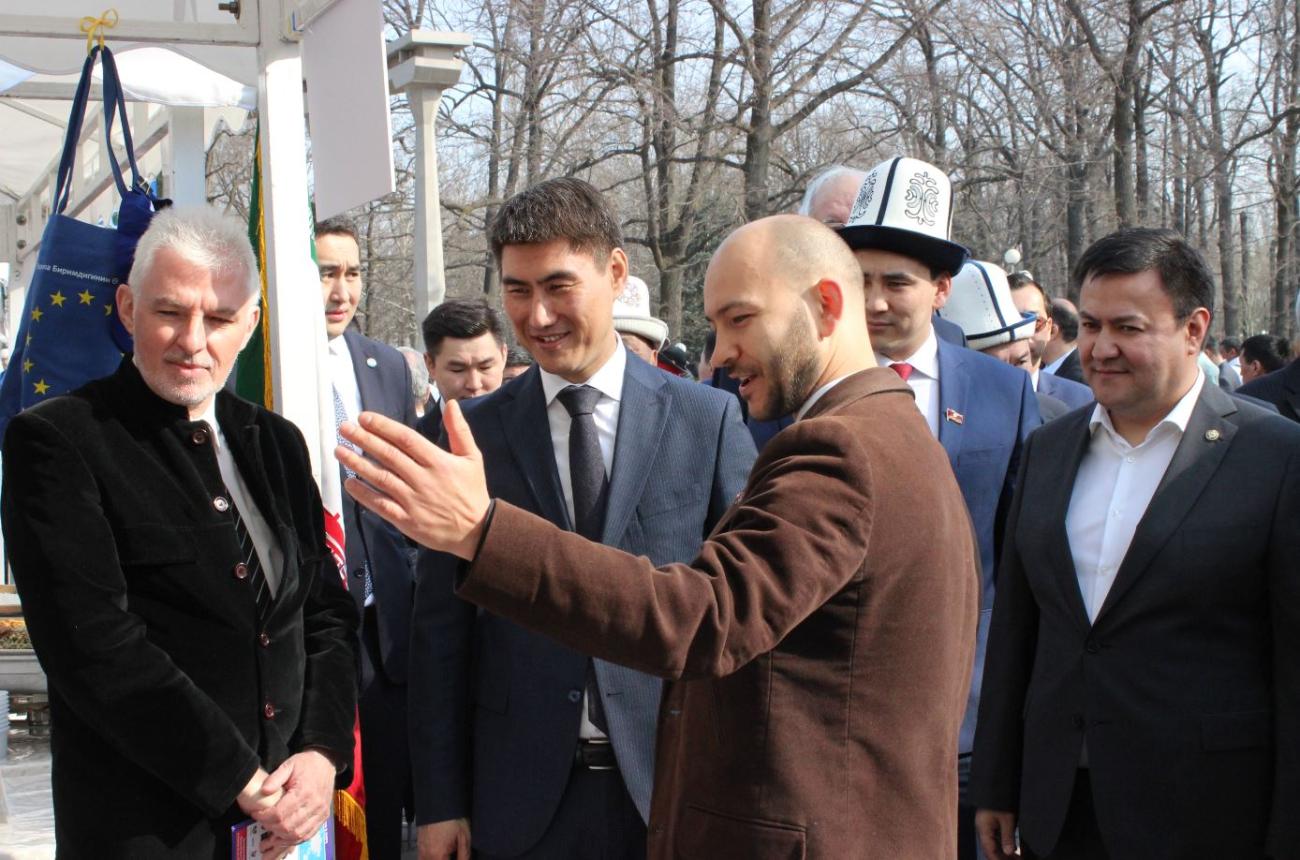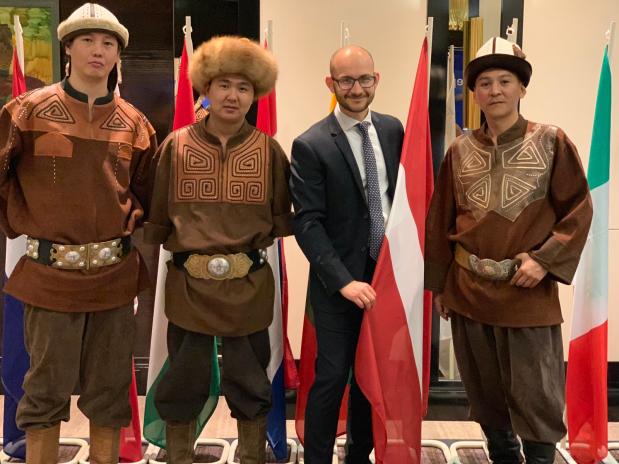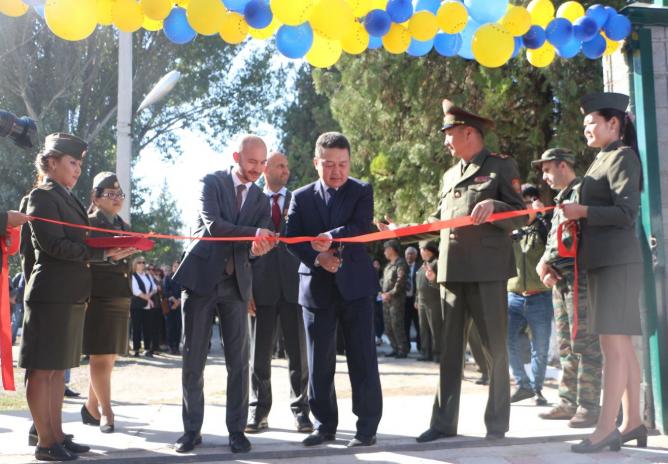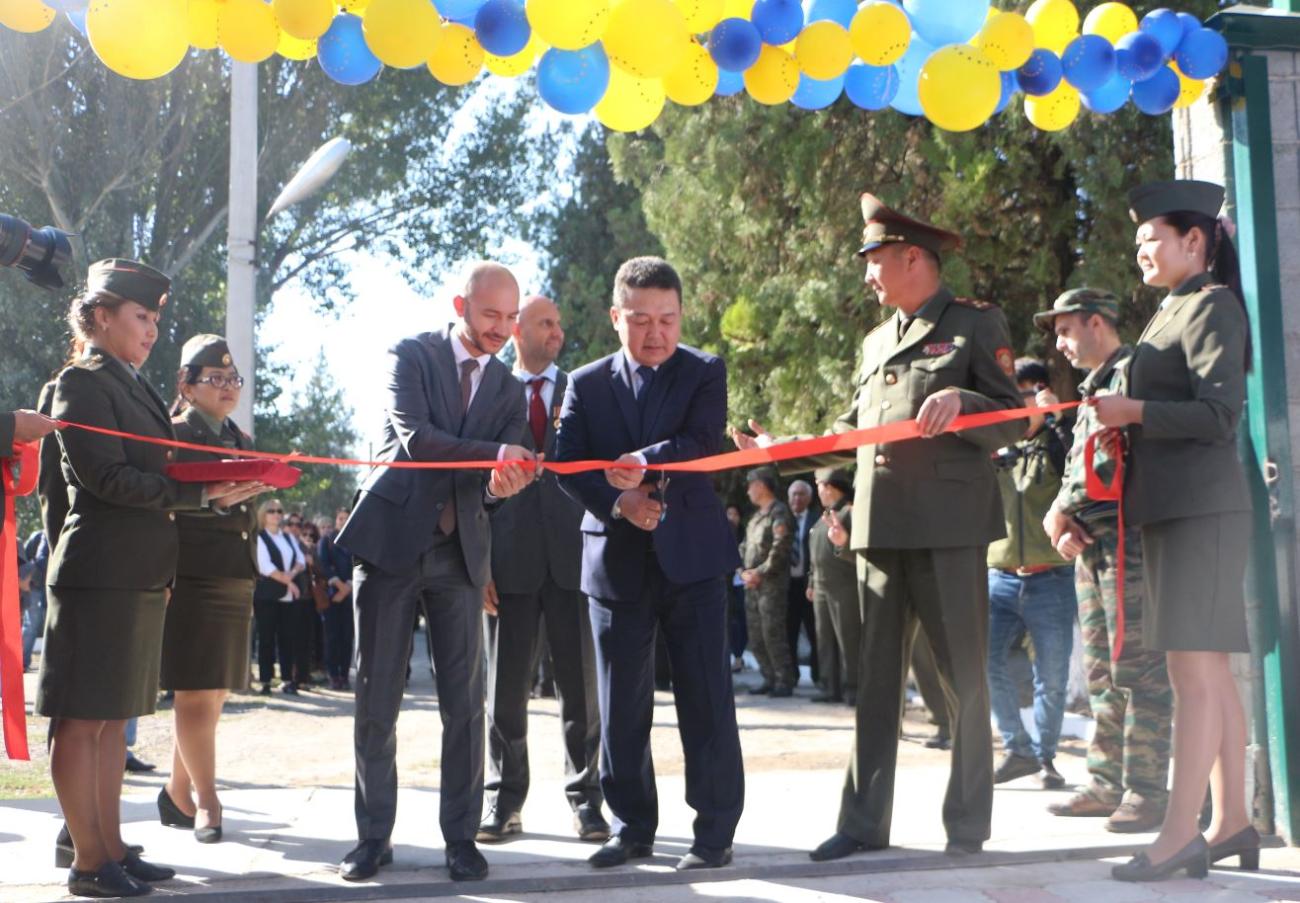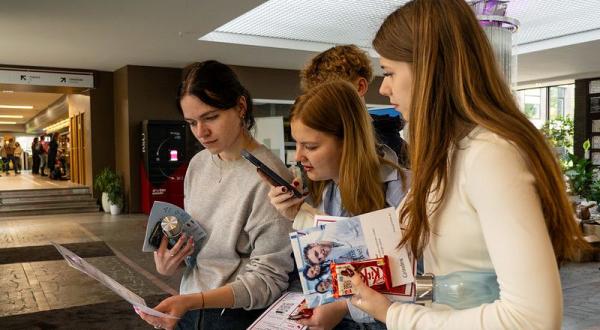The eyes, ears and mouth of Europe in Central Asia: RSU graduate Raimonds Vingris on his experience in Bishkek
If the Brussels-based European External Action Service acts as the foreign policy heart of the European Union (EU), then the approximately 140 EU Delegations and offices located in all regions of the world act as the sophisticated blood circulation system that keeps it beating. By managing the Political, Press and Information Section of the EU Delegation to the Kyrgyz Republic Raimonds Vingris, a graduate of Rīga Stradiņš University (RSU), is the eyes, ears and mouth of the EU in this vibrant Central Asian country.
RSU provided a good foundation that prepared Vingris for the diplomatic service on a European level. Later, wanting to improve his academic knowledge of international relations by studying in English, he chose to obtain one of his Master’s degrees from the Academy of Diplomatic Studies in Malta. The diplomat admits that if RSU had offered him the opportunity to study in English, something that is now possible with the International Governance and Diplomacy Master’s study programme, this would have been his first choice. ‘You must take any opportunity to strengthen the lingua franca of the modern world if you want to communicate well in an international environment,’ Vingris says. In this interview, he talks about his study years and his experience as a diplomat in Riga, Brussels, Bishkek and elsewhere.
How did you initially choose political science as your field of study?
Honestly, I hadn’t decided on what I wanted to study in my last year of secondary school. It was, however, very clear to me what I definitely did not want to study. At the same time, I had a strong desire to be closer to people and to help the community as much as possible. In addition, the idea of working in an international environment was attractive to me. Political science was therefore in line with some of my personal interests and gave a relatively clear picture of potential future professions, including diplomacy.
Tell us what a typical working day is like at the EU Delegation to Kyrgyzstan.
My responsibilities in the EU Delegation concern political, media and information affairs. As far as politics is concerned, my section works with creating wide-ranging bilateral dialogue with the partner country and monitors and analyses domestic, foreign and economic developments. The press and information section mainly covers the delegation’s work with the local population through media relations and a wide variety of public diplomacy tools.
During a typical working day I focus on the teamwork within our delegation in order to carry out and continue with assigned tasks. This can include coordinating with other sections of the delegation, mainly with the Development Co-operation Section, conducting a dialogue with governmental and non-governmental sectors of the partner country and keeping regular contact with international actors, including other diplomats based in the Kyrgyz Republic.
How international is your team?
The delegation has a total of 30 people. About half of these are EU citizens from countries such as Austria, Portugal, Belgium, Poland, Italy, France and Denmark, while the other half are local employees. It is a highly professional work environment upheld by a framework of comprehensive and detailed internal procedures and rules. The dominant role of bureaucracy is raised as an issue from time to time, but it has to be acknowledged that clearly identified individual and collective tasks serve as a cornerstone for a professional work environment.
It is challenging working in an international setting since it often involves adapting to a different mentality and a different working style, but at the same time it is also an interesting and educational process. Despite different approaches, the result is often of equally high quality whether it is done by an Italian or a Kyrgyz employee. Modern diplomacy is inconceivable without an international team, and such working conditions promote several qualities necessary for a diplomat – negotiation skills, tolerance, compromise and others.
Your career has been very diverse geographically: Riga, Brussels, Tbilisi, Tashkent, and now Bishkek. How quickly do you manage to adapt to each new temporary place of residence?
In my experience, adaptating becomes easier with each successive move. This can be attributed to both my growing professional experience and my understanding of the specifics of international relocation. Although quality of life, comfort and the mentality of the local society varies dramatically between Brussels and the capitals of Central Asia, for example, it took a similar amount of time to adapt to both places – I established a feeling of comfort and a certain routine after about half a year. From personal experience I can say that being active outside of work helps with the process of adaptation, particularly socialising and exploring the country by traveling. The new information you absorb both consciously and unknowingly gradually helps you adapt to the new environment.
Which of these temporary homes has been closest to your heart?
It is difficult to single one out – there is something special about each country, as well as professional and private events associated with each that have shaped my personality and my life. I have come to understand that this is one of the most positive aspects of a diplomat’s life – the opportunity to live for a relatively long time in a new environment, observing its social and cultural individuality, and eventually integrating to some extent. It’s very enriching!
Although you were a graduate student at the Academy of Diplomatic Studies in Malta, which focuses on the Mediterranean region, you are currently an expert on Central Asia. How would you describe this region?
It is a very interesting region. Some countries are undergoing huge reforms and development processes, the region is growing rapidly both demographically and economically, and its economic potential remains largely untapped. Moreover, Central Asia is at the crossroads between Europe and Asia. Many experts in the region are comparing the ongoing processes of sub-regional and trans-regional cooperation and integration with a historical revival of the Silk Road. The region is an area of strategic interest to Russia, China and individual regional superpowers. All this contributes to international interest in Central Asia, including from the EU.
To what extent is Central Asia currently the focus of EU foreign policy?
The EU sees Central Asia as a region of “neighbours of neighbours,” which, although geographically distant, borders some important immediate neighbours of the EU. Besides, several EU member states have significant links to the region, including Latvia. The EU sees great potential in the region and wants to be an active and credible partner in reform efforts and modernisation. There is a strong emphasis on the youth. The EU’s growing focus on the region is illustrated by the recent adoption of the new EU Strategy for Central Asia that is designed to strengthen and deepen mutual relations. The EU is also currently strengthening the legal framework of bilateral relations with individual countries in the region that will certainly contribute to deepening relations in the future.
Tell us to what extent RSU prepared you for this international career.
Studying at RSU was by no means a “walk in the park” – in my first year I quickly realised that studying successfully at RSU would require strict discipline, time management and an impressive amount of work and intellectual reflection. Looking back, however, it is clear that the work I invested has borne fruit. Understanding that the theoretical framework on political science and international relations that we were taught was sufficiently competitive in the European and global context boosted my self-confidence. In the end, undergraduate studies at RSU strengthened my desire to pursue a Master’s degree in international relations and diplomacy and, most importantly, to pursue a profession that I am very satisfied with today.

